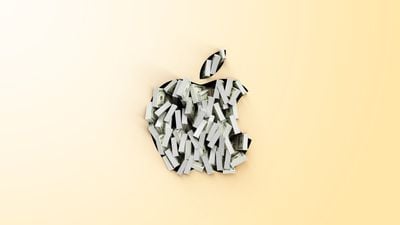Apple's $1.1 Billion Patent Dispute With Caltech Granted New Damages Trial
Apple and its supplier Broadcom today convinced a U.S. appeals court to reject a jury verdict that required them to pay $1.1 billion for infringing on Wi-Fi patents that belong to the California Institute of Technology (via Reuters).

In 2016, Caltech accused Apple and Broadcom of infringing on its patents related to the Wi-Fi technology used in many Apple devices. Caltech's patents, granted between 2006 and 2012, are highly technical and relate to IRA/LDPC codes that utilize simpler encoding and decoding circuitry for improved data transmission rates and performance. The technologies are implemented in both the 802.11n and 802.11ac Wi-Fi standards used by many Apple products.
In the court filing with the U.S. District Court for Central California, Caltech accused Apple of selling various iPhone, iPad, Mac, and Apple Watch models, along with other Wi-Fi products, that incorporate these IRA/LDPC encoders and/or decoders and thereby infringe upon four of Caltech's patents. Broadcom, as one of Apple's main suppliers of Wi-Fi chips, was also named in the complaint. At the time, Apple used Broadcom chips in the Apple Watch, iPhone, and iPad, as well as the MacBook Air, MacBook Pro, and iMac.
In 2020, a jury verdict ordered Apple and Broadcom to collectively pay Caltech a fine of $1.1 billion for the patent infringements. Apple was ordered to pay $838 million, while Broadcom was ordered to pay $270 million. Apple hoped to invalidate one of the patent claims, but this was subsequently declined by the U.S. Court of Appeals.
The U.S. Court of Appeals for the Federal Circuit today declared that the $1.1 billion award, which is one of the largest in U.S. history for a patent dispute, was not justified and ordered a new trial. The new damages trial will only reconsider Caltech's awarded sum, rather than revisiting the patent infringement itself.
Popular Stories
Apple today shared an ad that shows how the upgraded Center Stage front camera on the latest iPhones improves the process of taking a group selfie.
"Watch how the new front facing camera on iPhone 17 Pro takes group selfies that automatically expand and rotate as more people come into frame," says Apple. While the ad is focused on the iPhone 17 Pro and iPhone 17 Pro Max, the regular iPhone...
In select U.S. states, residents can add their driver's license or state ID to the Apple Wallet app on the iPhone and Apple Watch, and then use it to display proof of identity or age at select airports and businesses, and in select apps.
The feature is currently available in 13 U.S. states and Puerto Rico, and it is expected to launch in at least seven more in the future.
To set up the...
It has been a slow start to 2026 for Apple product launches, with only a new AirTag and a special Apple Watch band released so far. We are still waiting for MacBook Pro models with M5 Pro and M5 Max chips, the iPhone 17e, a lower-cost MacBook with an iPhone chip, long-rumored updates to the Apple TV and HomePod mini, and much more.
Apple is expected to release/update the following products...
New MacBook Pro models with the M5 Pro and M5 Max chips could arrive as soon as Monday, March 2, according to Bloomberg's Mark Gurman.
In today's "Power On" newsletter, Gurman said that the release of new MacBook Pro models is tied to the release of macOS Tahoe 26.3. The launch is said to be slated for as early as the week of March 2. He added that the M4 Pro and M4 Max models on sale today...
Apple is planning to launch new MacBook Pro models as soon as early March, but if you can, this is one generation you should skip because there's something much better in the works.
We're waiting on 14-inch and 16-inch MacBook Pro models with M5 Pro and M5 Max chips, with few changes other than the processor upgrade. There won't be any tweaks to the design or the display, but later this...




















